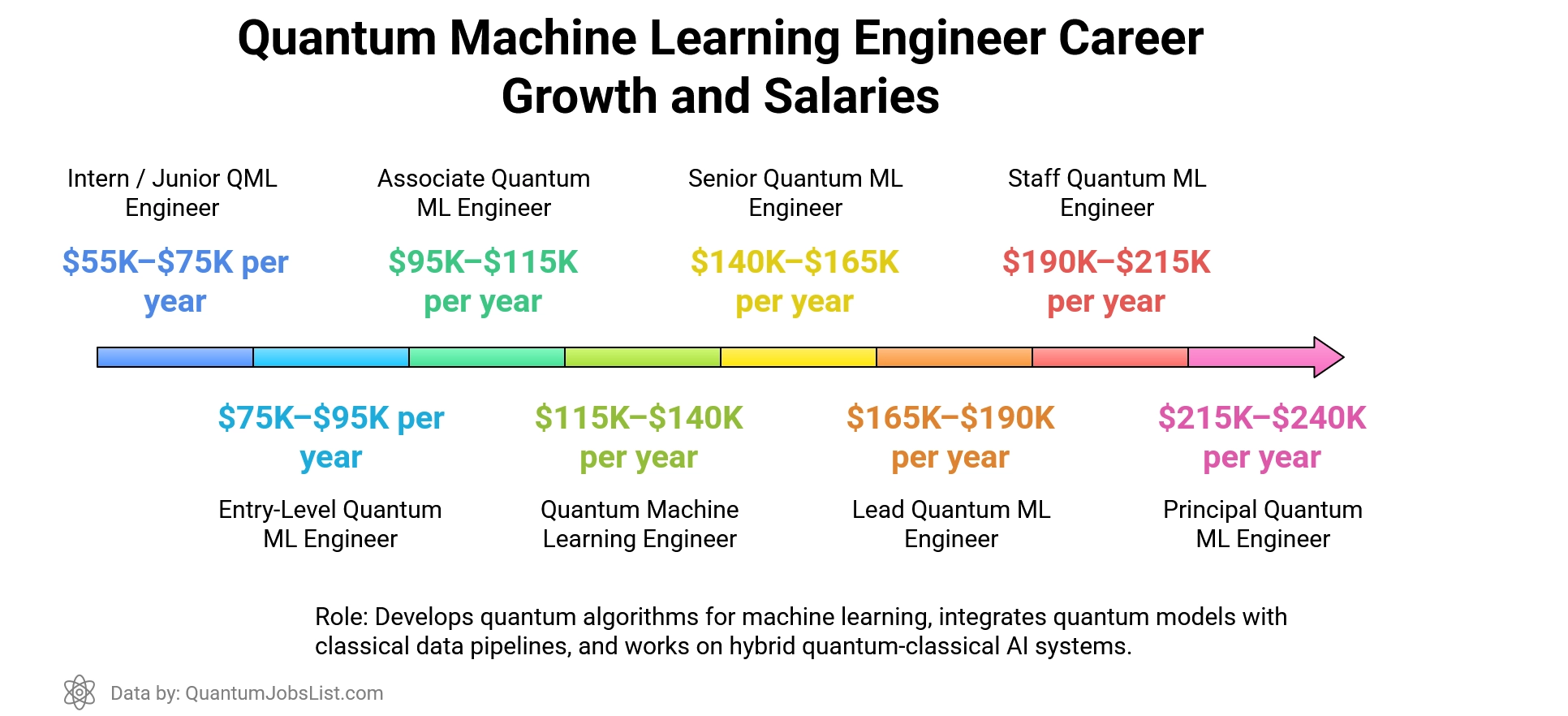A quantum machine learning engineer combines artificial intelligence frameworks with quantum computing, planning, and creating algorithms focused on machine learning tasks. They develop quantum neural networks and optimization systems that utilize quantum superposition, enhancing both inference and training processes.
Quantum machine learning engineers received a salary of $88,000 to $170,000 globally, with the price varying depending on the individual’s location and experience. The position requires a unique combination of classical machine learning, software engineering, and quantum computing.
As of now, an estimated 2,000 to 2,500 quantum machine learning engineers are working globally. These emerging positions are primarily drawing interest from the big technology companies and are their main focus of investment.
Quantum machine learning engineers, hired from major tech companies, are engaged in projects that focus on optimizing speed for tasks like drug discovery and financial modeling. These hires generally have advanced degrees in computer science, physics, or other closely related fields, along with experience using Tensorflow, PyTorch, and quantum tools like PennyLane.
Suggested Read: Top Quantum ML Jobs and required Skills

What is the average base salary?
Min. Qualifications
What You Need to Know
What does a Quantum Machine Learning Engineer do?
A Quantum Machine Learning Engineer develops quantum algorithms for AI tasks, creates quantum neural networks, and builds hybrid quantum-classical systems. These systems accelerate machine learning training and inference.
What applications do Quantum Machine Learning Engineers work on?
They develop applications for drug discovery, financial risk modeling, image recognition, optimization problems, and natural language processing; where quantum computing can accelerate classical machine learning algorithms.
What qualifications are needed to become a Quantum Machine Learning Engineer?
A master's degree in Computer Science, Physics, or related field is required. Experience in machine learning frameworks like TensorFlow, neural networks, and quantum programming tools are nice to have.
What is the average salary for a Quantum Machine Learning Engineer?
Quantum Machine Learning Engineers earn $88,000-$170,000 globally. American positions average $137,000. European roles around €115,000, and remote positions at $132,000 a year.
More Quantum Job Salaries
Cryogenic Engineer (Quantum Systems)
Builds ultra-low temperature systems for quantum hardware, earning $90,000-$185,000+.

Quantum Control Engineer
Designs and tunes quantum hardware control systems, earning $95,000-$190,000+.

Quantum DevOps Engineer
Manages quantum infrastructure and pipelines, earning $90,000-$180,000+.

Quantum Solutions Architect
Designs enterprise-ready quantum systems, earning $100,000-$210,000+.

Quantum Product Manager
Leads quantum product vision and delivery, earning $100,000-$220,000+.

Quantum Technical Writer
Creates documentation, and technical content for quantum computing products and research.


.svg)
.svg)

